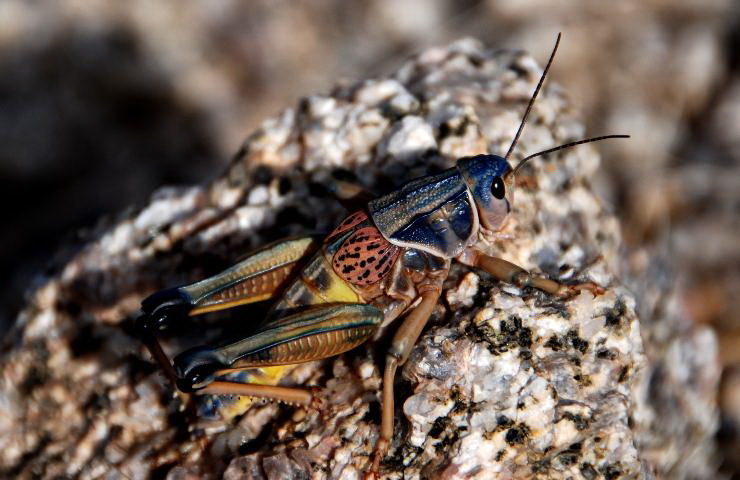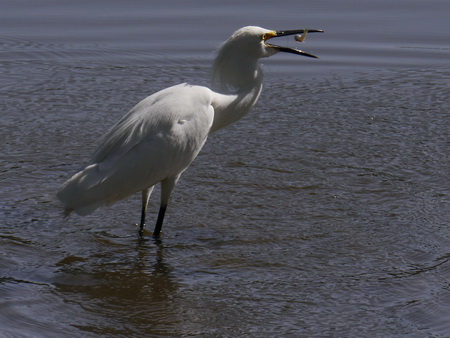Sitting in a burlap blind at the edge of the vast Malheur marsh in SE Oregon, my camera on my lap, I knew I might have hours to wait before some creature appeared within range of my lens. I was new to wildlife photography, but I was aware that constant vigilance was a price the photographer must assume for success. Nevertheless, I believed in the axiom that a watched pot never boils; staring eternally at the small patch of open water surrounded by elegant swaying bulrushes might be a counterproductive strategy. To spend my waiting period profitably, perhaps I should read. Perhaps any suspicious muskrat or ibis might be convinced that the dark shape behind the burlap was no more than an eccentric scholar with no apparent predatory interest of any kind. Alerted by sound to the arrival of an unsuspecting creature, I could then carefully slide my long lens through a slit in the fabric to capture the essence of that animal on film. A sound plan, I thought.
So what was I doing sitting on a flipped-over pesticide bucket in a stifling burlap blind on a hot summer day? This was my day off at the refuge. I was a student trainee with the Fish and Wildlife Service, gaining valuable experience working in the field of wildlife biology during the summer between my sophomore and junior years at WashingtonStateUniversity. Watching and photographing animals was my passion and doing summer reading for credit was my obligation for the Honors Program at WSU. To satisfy both passion and obligation, I had chosen to explore the field of animal behavior, and here I could do some of each.
At the suggestion of a friend, I had brought along a copy of The Insect World of J. Henri Fabre, edited by Edwin Way Teale. Though I had been a budding naturalist since my childhood years, insects had, for the most part, been beneath my notice. Now was the time to dip into a new subject. Despite the book jacket blurb pointing out that Victor Hugo had called Fabre “the Homer of the Insects,” I didn’t expect any earth-shaking revelations, but a few minutes of reading provided enough mental tectonics that I knew my life would be forever changed.
Teale began his volume with a short biography of Fabre, the man, who lived from 1823 to 1914. Of humble origins, the Frenchman Fabre worked in obscurity and poverty most of his life, living simply and working with quiet passion on observing and interpreting the lives of the little things, the insects and spiders of the countryside. With incredible patience, an aptitude for creating field experiments to test his ideas on animal instincts, and charming literary style, Fabre produced some of the lasting classics of natural history. Only as he approached 90 years of age did Fabre suddenly achieve fame, and by then, his time on earth was running out.
Teale’s introduction mentioned some of the limitations of Fabre’s work: his isolation from centers of research and consequent ignorance of other experiments that he unknowingly repeated, his gaps in taxonomic sophistication, his unwillingness to accept Darwin’s theory of evolution by natural selection, his occasional lack of “big picture” perspective. Yet despite those limitations, Fabre’s pioneering work has achieved lasting greatness. As Teale writes:
Fabre went direct to nature. He interrogated the insects themselves—‘through the language of experiment.’ He led in the study of living entomology at a time when the science seemed preempted by those whose horizon of interest was limited by the dead insect and the pinned specimen. And this indefatigable self-teacher possessed to a remarkable degree that divine gift of all great teachers, the ability of transmitting his enthusiasm to others. Each experiment becomes an adventure. . . . There is feeling as well as seeing, poetry as well as science, in his pages. And all is set down in simple, durable prose.
Now my curiosity was piqued. Here was a man who looked to nature as a source of wonder, of adventure. Here emotions and science were united, not forced into opposing camps. This was obviously a man after my own heart. Already at college I had struggled with the downside of science, a tendency to reduce complex living creatures to systems of neurons, vessels, hormones, and bones. As strongly as I was drawn to science as the recognized approach to studying nature, I felt in conflict as the life seemed to be pulled out of the animals I loved.
Earlier that summer, I had struggled through a massive tome on animal behavior written by a British experimental psychologist. The mechanistic and reductionist approach to behavior appalled me. I wondered if my passion for studying living animals, my desire to be well educated in the field, had somehow led me down a scientific maze that opened only into a world of dissections, stimulus-response trials, positive and negative reinforcement, and technical verbiage that obscured more than it revealed.
Now here I was, literally out in the tules, opening a book by a self-taught naturalist who at the close of the 19th and start of the 20th Centuries felt much as I did in the late 1960’s. In his poverty, Fabre could not afford to travel to the exotic locales about which he dreamed as a child. As a man of 55, he finally got a small plot of land to call his own, and this became his outdoor laboratory to observe the lives of insects. Fearing that he was by now too old to make full use of this dream finally fulfilled, he lamented in print to his beloved insects:
Will my strength not cheat my good intentions? Why, indeed, did I forsake you so long? Friends have reproached me for it. Ah, tell them, tell those friends, who are yours as well as mine, tell them . . . that before philosophizing, one had to live. Tell them that, and they will forgive me.
Others again have reproached me for my style, which has not the solemnity, nay, better, the dryness of the schools. They fear lest a page that is read without fatigue should not always be the expression of the truth. Were I to take their word for it, we are profound only on condition of being obscure. . . . My pages, though they bristle not with hollow formulas nor learned smatterings, are the exact narrative of facts observed, neither more nor less; and whoso cares to question you in his turn will receive the same replies.
And then, my dear insects, if you cannot convince these good people because you do not carry the weight of tedium, I, in my turn, will say to them:
‘You rip up the animal and I study it alive; you turn it into an object of horror and pity, whereas I cause it to be loved; you labor in a torture-chamber and dissecting room, I make my observations under the blue sky to the songs of cicada; you subject cell and protoplasm to chemical tests, I study instinct in its loftiest manifestations; you pry into death, I pry into life. And why should I not complete my thought: the boars have muddied the clear stream; natural history, youth’s glorious study, has by dint of cellular improvements, become a hateful and repulsive thing. Well, if I write for men of learning, for philosophers, who, one day, will try to some extent to unravel the tough problem of instinct, I write also, I write above all things for the young. I want them to love the natural history which you make them hate; and that is why, while keeping strictly to the domain of truth, I avoid your scientific prose.’
Wow, the words of that feisty old man struck a responsive chord in this eager but conflicted young college student. As I read on, the detail of his observations of the small creatures that are around us daily both amazed and humbled me. How could I claim to be a naturalist, despite my obvious love for nature and my incessant curiosity to learn more about it, when I lacked the patience and the descriptive skills to produce anything like the stories of Fabre, this peasant with few resources and no public recognition? The details of his stories have not remained in my patchy memory banks, but the inspiration has not left me. I felt a sudden legitimization of my natural calling, my quest to become a naturalist.
Immersed in The Insect World of J. Henri Fabre, I barely heard the slight rippling of the water where an egret, elegant and patient, stalked its prey. My film captured that bird, but my real reward that steamy afternoon came through the power of words written decades before. My view of life, my view of myself as potential naturalist, grew immeasurably.
And at this middle age of my life, about the same in years as when Fabre acquired his small acreage for study, I return to his writings for pleasure and insights. I hold up my own nature writing to his mirror, not with any hope of matching his inimitable style, but with the hope that my observations are true to nature, that they possess some meaning that will reach at least one other person, that I will always be satisfied with their essential truth.
originally drafted 14 April 2002



A good teacher points the way, then gently retreats, creating the opportunity for awe to fill the void and start the student on a life’s journey of wonder and knowledge; for nature is the eternal spring of all inspiration.